Optimal Timing for Wood Siding Staining
Determining the optimal time for wood siding stainings depends on climate, temperature, and humidity levels. Proper timing ensures stain adhesion, durability, and appearance longevity. Typically, the ideal period is during mild weather conditions with low humidity and temperatures between 50°F and 85°F.
Spring offers moderate temperatures and lower humidity, making it suitable for staining projects before peak summer heat.
Summer requires careful planning due to higher temperatures and humidity, which can affect stain drying times and adhesion.
Fall provides cooler, drier weather, ideal for staining as long as temperatures remain above freezing.
Winter is generally unsuitable due to cold temperatures, increased moisture, and unpredictable weather conditions.
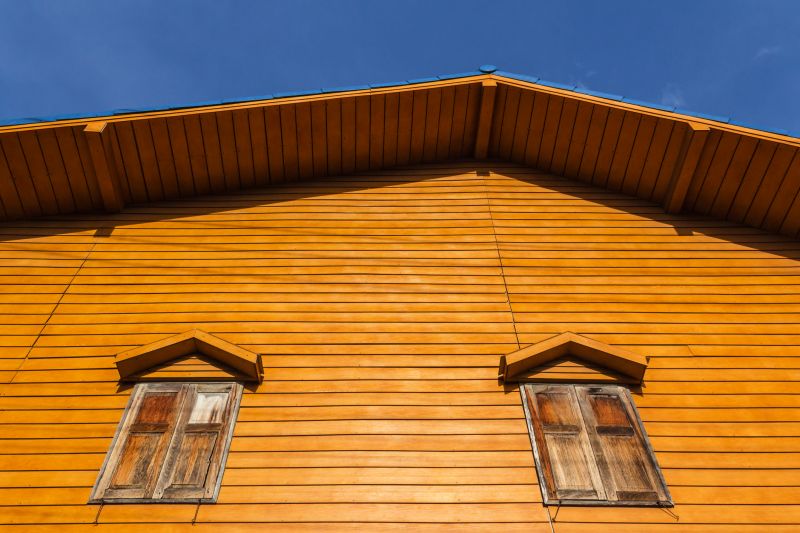
Spring's mild weather supports optimal stain absorption and curing.
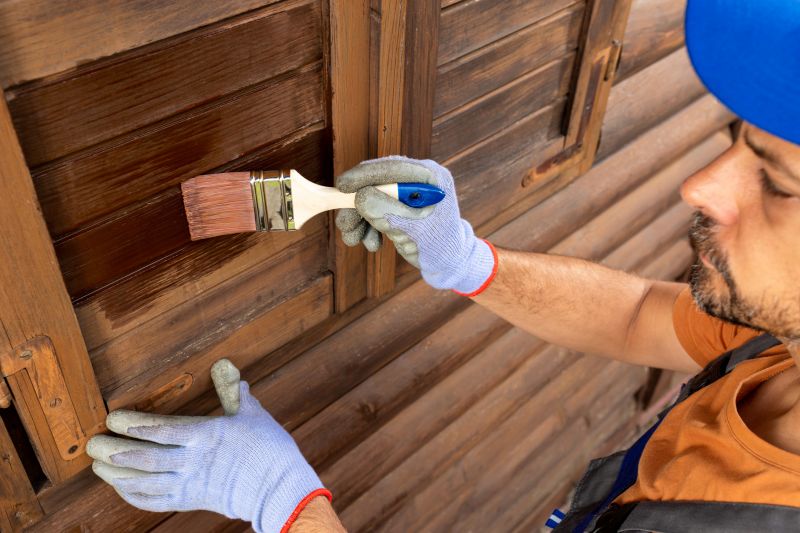
Summer requires careful timing to avoid excessive heat and humidity.
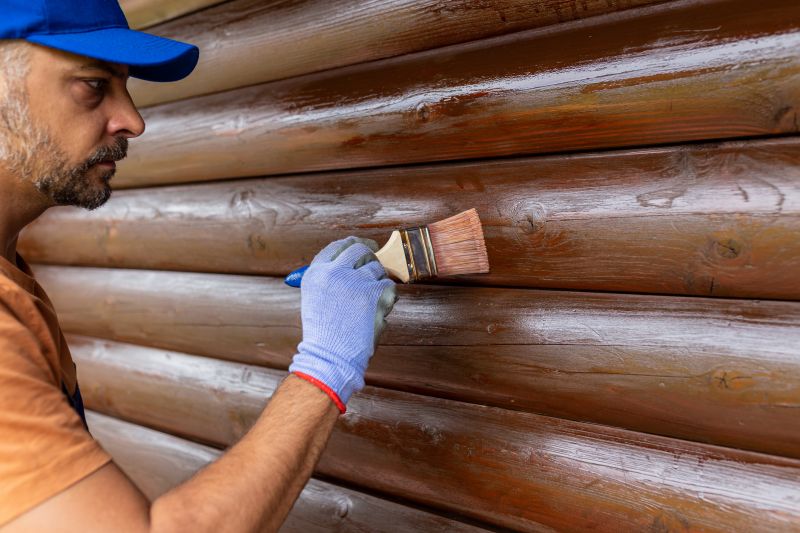
Fall's cooler temperatures help achieve a smooth, long-lasting finish.
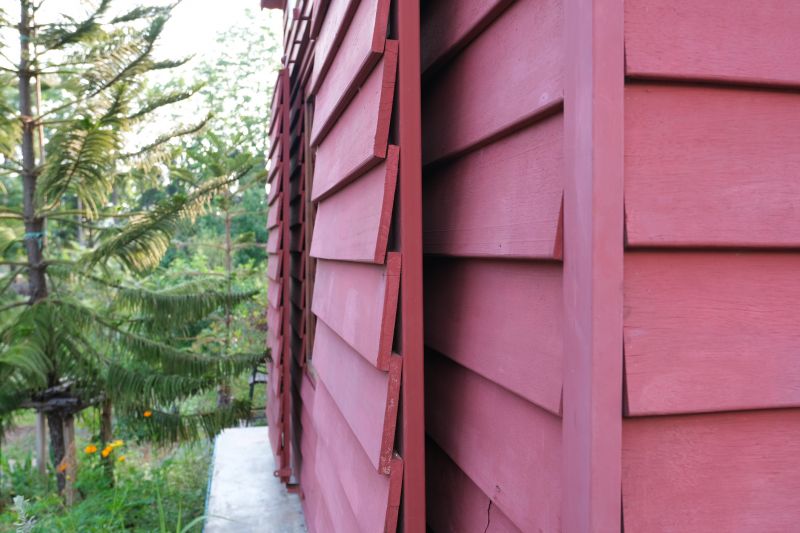
Ways to make Wood Siding Stainings work in tight or awkward layouts.
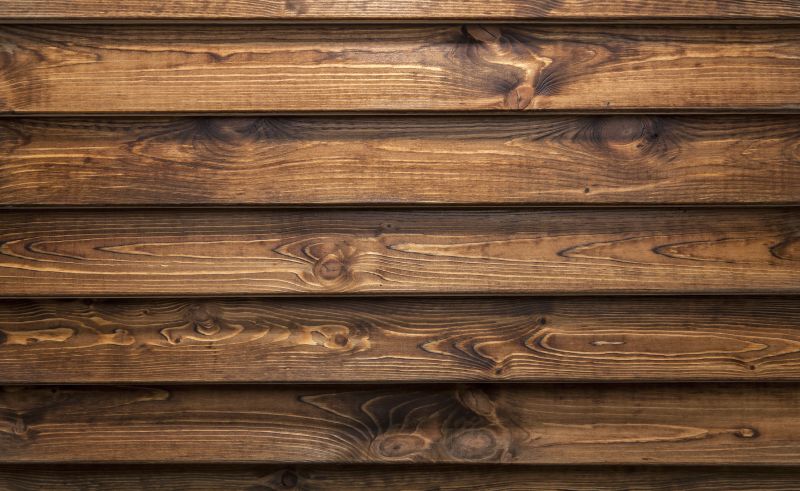
Popular materials for Wood Siding Stainings and why they hold up over time.
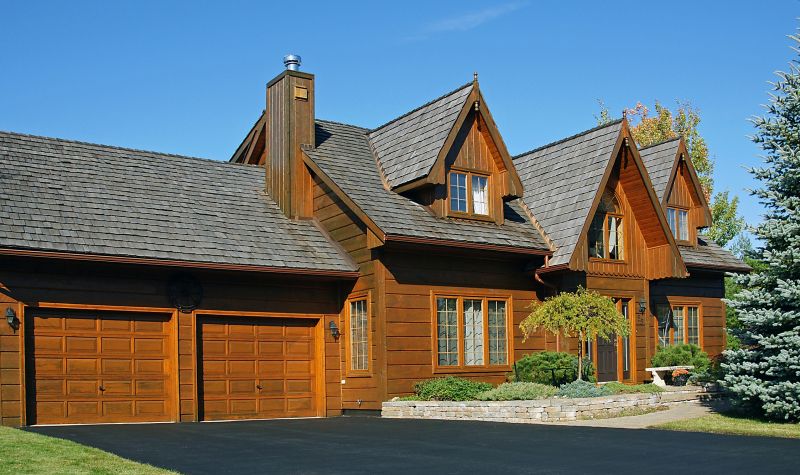
Simple add-ons that improve Wood Siding Stainings without blowing the budget.
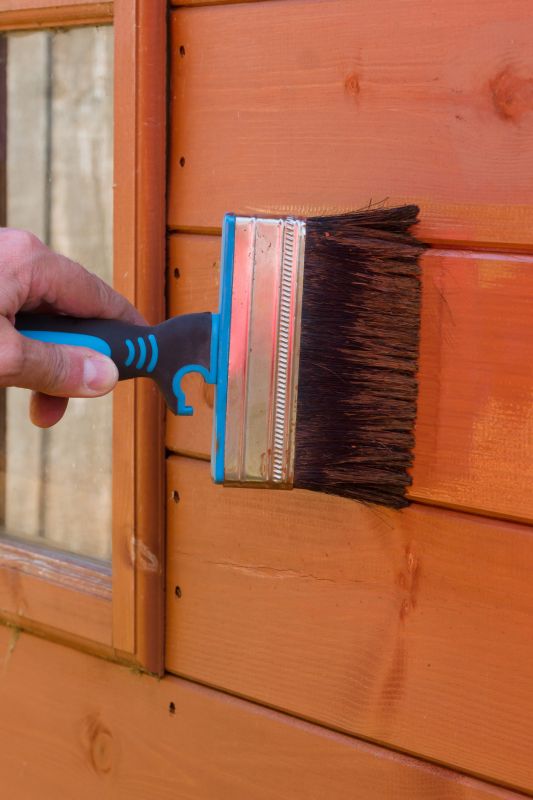
High-end options that actually feel worth it for Wood Siding Stainings.

Finishes and colors that play nicely with Wood Siding Stainings.
| Season | Ideal Conditions |
|---|---|
| Spring | Temperatures between 50°F and 70°F, low humidity |
| Summer | Temperatures between 70°F and 85°F, low humidity |
| Fall | Cooler temperatures, above freezing, dry days |
| Winter | Cold temperatures, high moisture, not recommended |
Wood siding stainings are essential for protecting and enhancing the appearance of wood exteriors. Proper staining can extend the lifespan of wood surfaces by shielding against moisture, UV rays, and pests. The process involves preparing the surface, choosing the appropriate stain type, and applying under suitable weather conditions. Statistics indicate that well-maintained stained wood siding can last up to 8-10 years, depending on climate and maintenance practices.
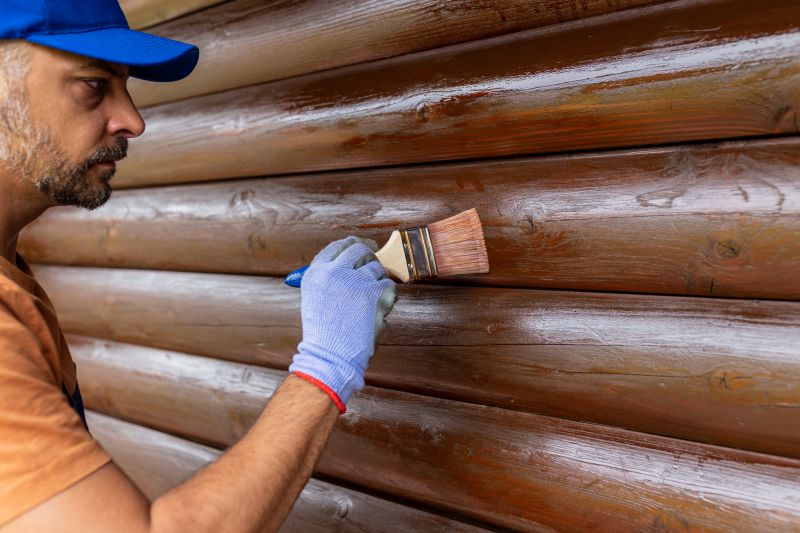
A well-stained exterior enhances curb appeal and provides protection.

Proper timing ensures stain durability against weather elements.

Surface cleaning and sanding are crucial before staining.
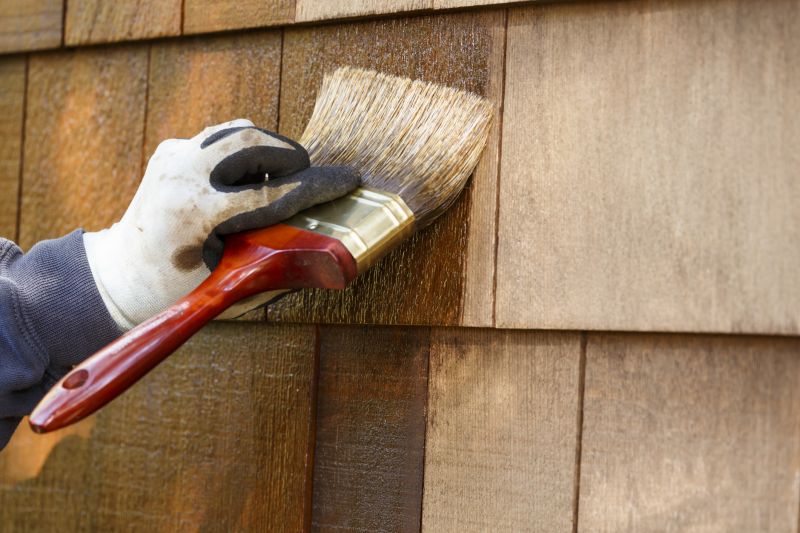
Applying stain evenly prevents streaks and uneven color.
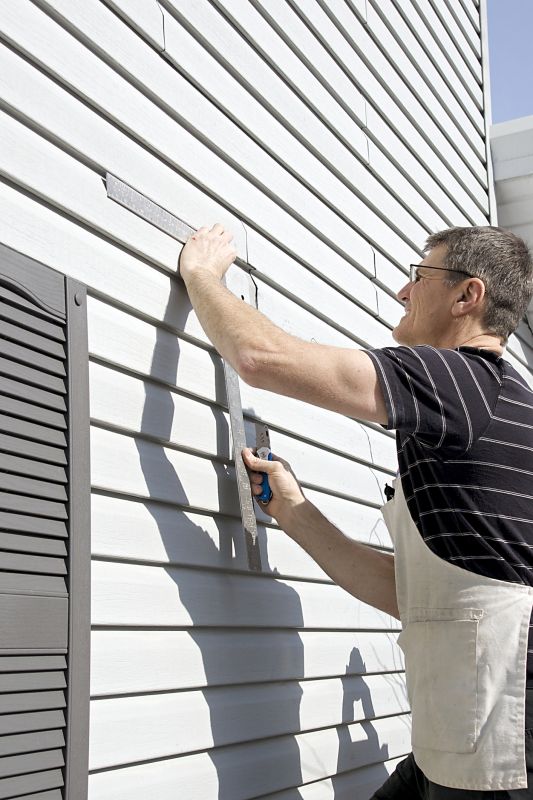
Little measurements that prevent headaches on Wood Siding Stainings day.
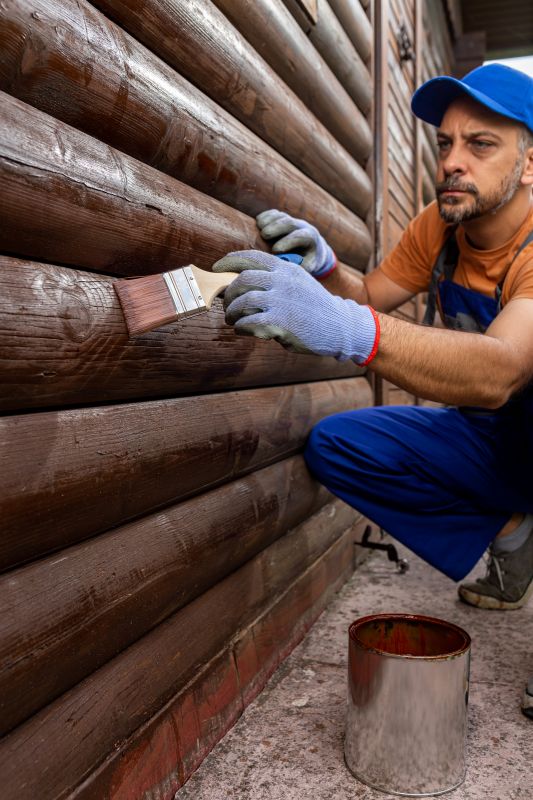
A 60-second routine that keeps Wood Siding Stainings looking new.
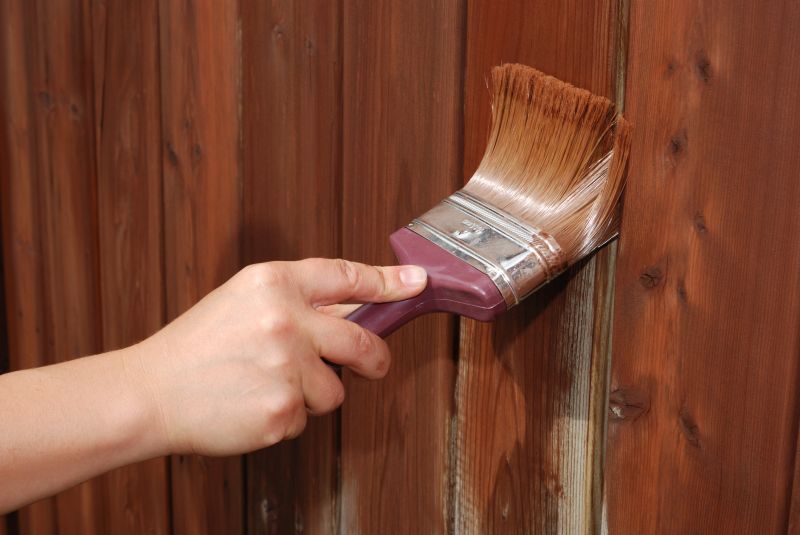
A frequent mistake in Wood Siding Stainings and how to dodge it.
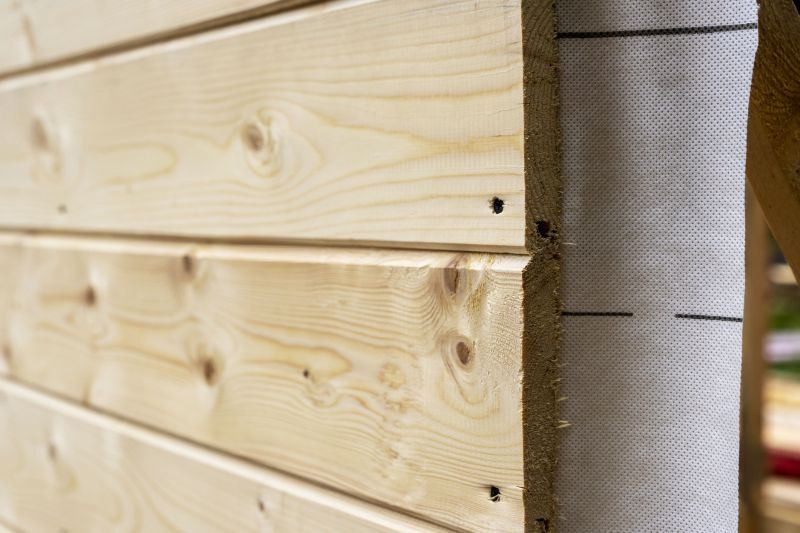
Small tweaks to make Wood Siding Stainings safer and easier to use.
Interested in scheduling a wood siding staining project? Filling out the contact form can provide more information and assistance in planning the optimal timing for staining your wood surfaces.



